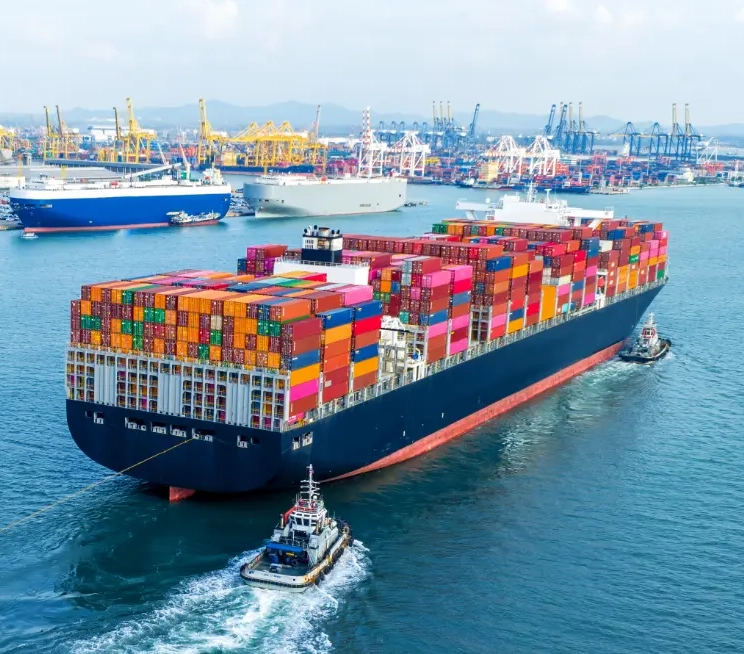Freight forwarding plays a crucial role in global trade, ensuring goods are transported from one place to another efficiently. However, this process comes with various risks that can disrupt operations and lead to significant losses.
Understanding these risks and knowing how to manage them is essential for any business involved in logistics. Here, we’ll discuss the common risks in freight forwarding and provide practical tips on how to mitigate them.

Damage to Goods
During transit, goods can be damaged due to poor handling, accidents, or adverse weather conditions. Damaged goods can lead to financial losses and customer dissatisfaction.
Management Tips:
- Proper Packaging: Ensure goods are packaged securely to withstand the rigors of transportation.
- Insurance: Invest in comprehensive cargo insurance to cover potential damages.
- Choose Reliable Carriers: Work with reputable carriers known for handling goods with care.
Delays in Transit
Delays can occur due to various factors such as customs hold-ups, port congestion, or unforeseen events like strikes or natural disasters. These delays can affect delivery schedules and customer satisfaction.
Management Tips:
- Plan Ahead: Allow extra time for potential delays when scheduling shipments.
- Use Technology: Utilize tracking systems to monitor shipments in real-time.
- Maintain Flexibility: Have contingency plans in place to reroute shipments if necessary.
Customs Issues
Incorrect documentation, non-compliance with regulations, or changes in customs policies can result in delays, fines, or confiscation of goods.
Management Tips:
- Accurate Documentation: Ensure all paperwork is complete and accurate.
- Stay Informed: Keep up-to-date with the latest customs regulations and requirements.
- Hire Experts: Consider working with customs brokers to navigate complex regulations.
Theft and Security Threats
Goods can be stolen or tampered with during transit, leading to financial losses and compromised product integrity.
Management Tips:
- Secure Packaging: Use tamper-evident seals and sturdy packaging.
- Tracking Systems: Implement GPS tracking to monitor the movement of goods.
- Work with Trusted Partners: Choose logistics partners with strong security protocols.
Financial Risks
Currency fluctuations, credit issues, or unexpected costs can impact the profitability of freight forwarding operations.
Management Tips:
- Contracts and Agreements: Clearly define terms and conditions in contracts to avoid disputes.
- Insurance: Protect against financial losses with appropriate insurance coverage.
- Financial Planning: Monitor cash flow and set aside funds to cover unexpected expenses.
Environmental Risks
Natural disasters like hurricanes, floods, or earthquakes can disrupt supply chains and cause significant delays.
Management Tips:
- Diversified Routes: Plan multiple shipping routes to avoid disaster-prone areas.
- Real-Time Updates: Use weather monitoring systems to stay informed about potential disruptions.
- Emergency Plans: Develop comprehensive emergency response plans to minimize impact.
Compliance Risks
Non-compliance with international trade regulations can result in fines, penalties, and legal issues.
Management Tips:
- Regular Audits: Conduct regular audits to ensure compliance with all regulations.
- Training: Provide ongoing training for staff on compliance and regulatory changes.
- Expert Assistance: Consult with legal and compliance experts to navigate complex trade laws.
Conclusion
Freight forwarding is fraught with risks, but with careful planning and proactive measures, these risks can be effectively managed.
By investing in proper packaging, leveraging technology, staying informed about regulations, and working with reliable partners, businesses can navigate the complexities of freight forwarding and ensure the smooth, efficient delivery of goods.
At Eleevate Logistics, we prioritize the safety and efficiency of your shipments. Our team of experts is dedicated to managing risks and providing top-notch freight forwarding services.
Contact us today to learn how we can help streamline your logistics operations.


